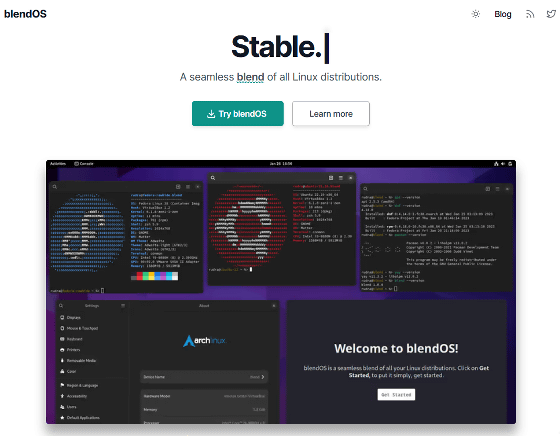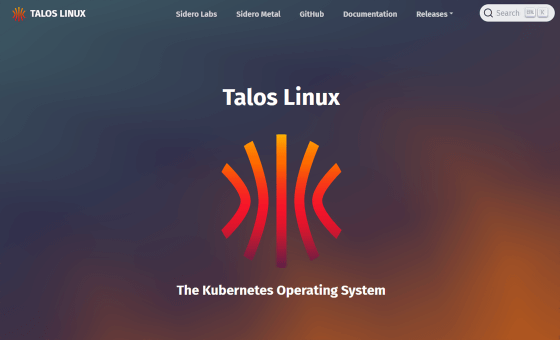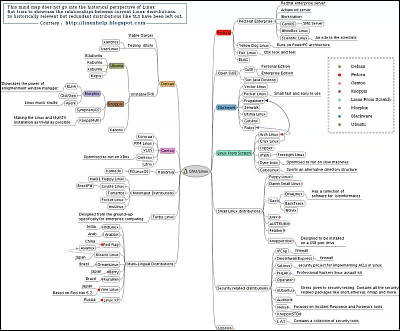8 ``Linux distributions that cannot change the system'' specializing in container execution and security

There are various types of Linux distributions, such as those with long support periods and those that use rolling releases. Among such a large number of distributions, 8 distributions whose core part of the system cannot be edited and guarantees immutability have been introduced by It's FOSS of overseas media.
8 Immutable Linux Distributions for Those Looking to Embrace the Future
https://itsfoss.com/immutable-linux-distros/
The eight distributions listed below ensure system immutability by making the core read-only. Ensuring immutability has the advantage of enhancing security, as well as the advantage of facilitating the distribution of applications using container technology because the system configuration is the same in any environment.
◆ Part 1: carbonOS
carbonOS is a Linux distribution developed with the aim of achieving both intuitive operability and system robustness. CarbonOS updates run in the background and have the ability to automatically roll back to the previous version in the unlikely event of an update failure.
carbon OS
https://carbon.sh/

◆ Part 2: Fedora Silver blue
Fedora Silverblue, developed as a derivative project of the popular distribution Fedora, is characterized by ensuring immutability with almost the same operability as Fedora. Also, since development is progressing as a derivative project of Fedora, we can expect that a new version of Fedora Silverblue will be released when a new version of Fedora is released.
Fedora silver blue
https://getfedora.org/ja/silverblue/

◆ Part 3: Flatcar Container Linux
Flatcar Container Linux, as the name suggests, is a distribution optimized for workloads using container technology. The OS image contains only the applications required to run the container, and is offered in four release cycles: 'Stable', 'LTS', 'Alpha' and 'Beta'.
Flatcar Container Linux | Flatcar Container Linux
https://www.flatcar.org/

◆ Part 4: openSUSE MicroOS
openSUSE MicroOS is an offshoot of openSUSE and uses rolling releases. openSUSE MicroOS updates are delivered over HTTPS and all packages in the repository are verified by the project team to ensure high security.
openSUSE MicroOS
https://microos.opensuse.org/

◆ Part 5: Vanilla OS
Vanilla OS is a Debian-based, immutable distribution. Vanilla OS supports various application distribution formats such as 'Flatpak', 'Nix' and 'Appimage', and can run many applications. In addition, it is equipped with an automatic management function of the GPU driver, and it is appealing that the performance can be maximized regardless of the type of GPU such as Intel, NVIDIA, AMD.
Vanilla OS
https://vanillaos.org/

◆ Part 6: Bottlerocket
Bottlerocket is a Linux-based OS developed by Amazon Web Services (AWS) that specializes in running containers. Bottlerocket is available as an Amazon Machine Image (AMI) on Amazon Elastic Compute Cloud (EC2).
Container Host - Bottlerocket - Amazon Web Services
https://aws.amazon.com/jp/bottlerocket/

◆ Part 7: blendOS
blendOS is a distribution that aims to literally blend OSes such as Ubuntu, fedora and Arch Linux. The core part of blendOS is based on Arch Linux, but mainstream package managers for various distributions such as 'apt-get', 'yum', 'pacman' and 'yay' can be used on one distribution. In addition, Flatpak images are also available to run many applications.
blendOS — The Ultimate Distro-Blend.
https://blendos.co/

◆ Part 8: Talos Linux
Talos Linux is a distribution developed on the assumption that it will run on the container management platform ' Kubernetes '. Talos Linux runs in memory like a LiveCD, and leaves disk management to Kubernetes.
Talos Linux
https://www.talos.dev/

Related Posts:
in Software, Posted by log1o_hf







